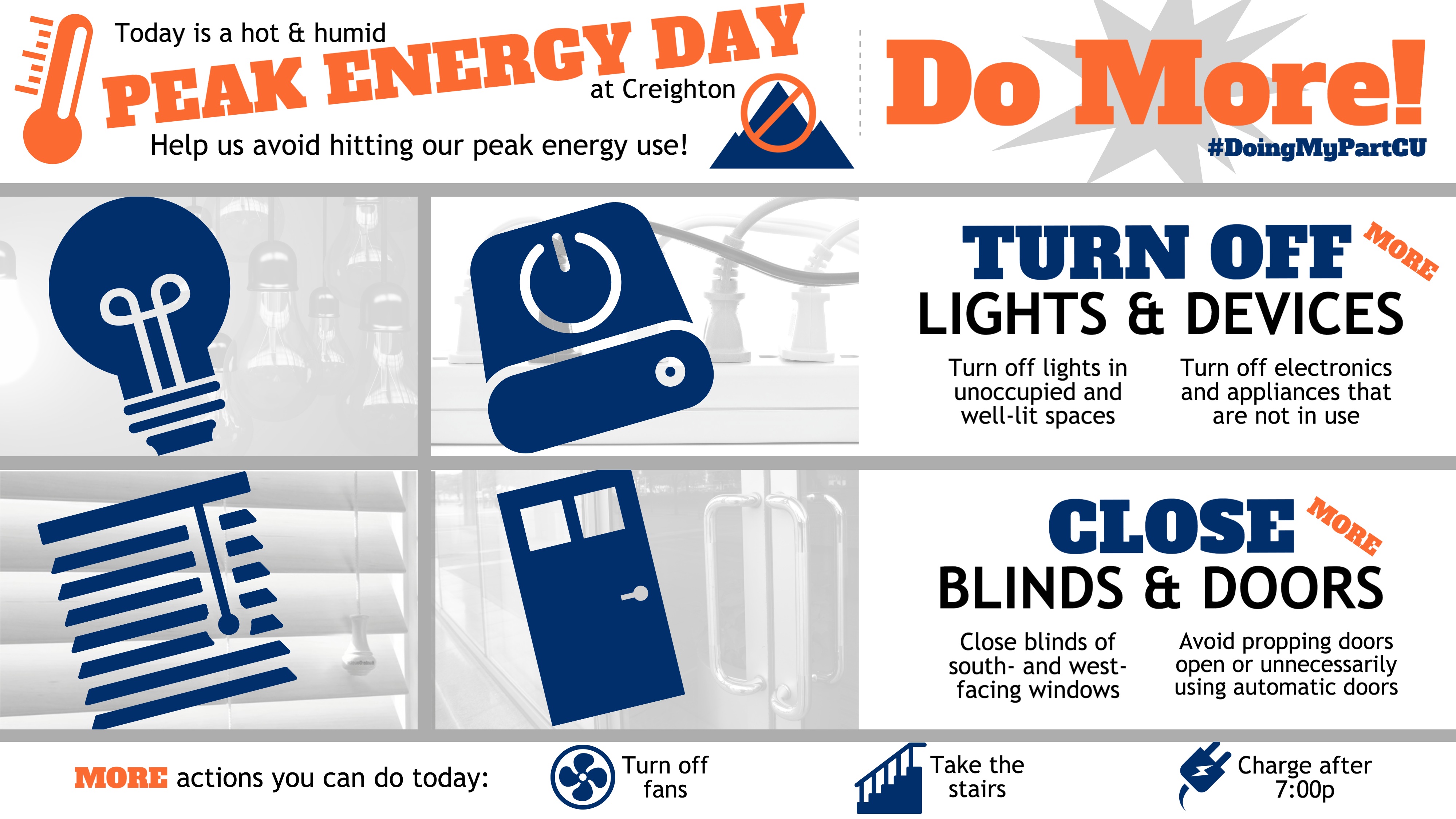Peak Energy Days
Do Your Part to help Creighton avoid hitting its peak energy use!
Peak Energy Days
Peak Energy Days are hot and humid days in which the university may require more electricity than it typically uses on most other days. In other words, Creighton's energy use "peaks" on these days. Avoiding or minimizing these peaks is important, because Creighton's annual electricity charges are influenced by the amount of electricity it requires during its highest 15 minute peak period. These peak periods are most likely to occur on hot, humid days during the summer and at the beginning of fall semester.
By doing our part to reduce Creighton's peak energy use, we can save thousands of dollars each year. That money can then be reinvested in other ways that support Creighton's mission. Reducing energy consumption in general, and especially on peak energy days, also improves Creighton's local and global environmental impact.
Facilities Management, in partnership with OPPD, plans to avoid energy "peaks" by several means, ultimately conserving resources and saving money:
- Adjusting air conditioning. Some buildings or spaces should expect a temporary 1-2 °F change in their typical temperature settings.
- Turning down lighting, fan motors, and pumps.
- Scheduling energy-intensive equipment to run at non-peak times.
We are also asking students, faculty, and staff to Do Your Part to help Creighton avoid hitting its peak energy use.

Helpful actions you can perform on Peak Energy Days
- Turn off lights. Turn off lights when you leave a room, e.g. residence hall room, classroom, office, conference room, etc. Turn off lights where artificial lighting is unnecessary, e.g. a hallway with ample natural light.
- Turn off devices. Turn off and unplug electronics and appliances that you are not using at the moment. This includes:
- Computer monitors
- Printers
- Projectors
- Fans
- Space heaters
- Video game consoles
- Coffee makers
- Televisions
- Close blinds. Close blinds, curtains, and shades during the day to prevent sunlight from heating up cool, conditioned indoor spaces. This is especially important for south- and west-facing windows.
- Close doors. Avoid propping or holding entryway doors open. Open doors manually (if possible) rather than using the automatic door button. This will limit hot, humid air from entering the building and keep you more comfortable inside.
- Use the stairs. Take the stairs instead of the elevator, if possible.
- Charge after 7: Charge laptops and personal electronic devices after 7:00pm.
- Shut fume hoods: Shut fume hood sashes in lab areas when appropriate.
Please participate in these actions and share using #DoingMyPartCU.
If you have any questions, please email Mary Duda or call 402-546-6404.
"Turning off unnecessary lights directly and significantly affects the world around us."
-Pope Francis, On Care for Our Common Home, June 2015

